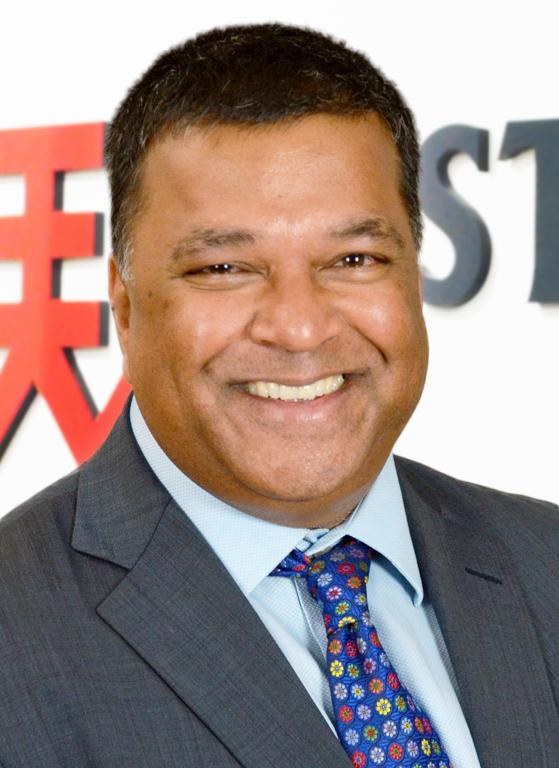Error message

The East-West Center in Washington invites you to an
Indo-Pacific Foreign Policy and Defense Series Webinar and Book Launch:
The Courteous Power:
Japan and Southeast Asia in the Indo-Pacific Era
A Conversation With:
Dr. John Ciorciari
Associate Professor and Director of the International Policy Center and Weiser Diplomacy Center,
Gerald R. Ford School of Public Policy, University of Michigan
Dr. Shino Watanabe
Professor at the Faculty of Global Studies, Sophia University in Tokyo, Japan &
Fulbright Scholar, Sigur Center for Asian Studies, Elliott School of International Affairs,
George Washington University
Dr. Nobuhiro Aizawa
Associate Professor of Graduate School of Social and Cultural Studies,
Kyushu University
Dr. Satu P. Limaye (Moderator)
Vice President, East-West Center &
Director, East-West Center in Washington
East-West Center in Washington · The Courteous Power: Japan and Southeast Asia in the Indo-Pacific Era
Since taking office this fall, Japanese Prime Minister Fumio Kishida has pledged to redouble cooperation with Southeast Asia as part of a larger effort to advance a free and open Indo-Pacific order. Southeast Asia and Japan have long been important partners to one another, and their relationship has become ever more crucial as both sides seek to address the COVID-19 pandemic, mounting Sino-American tensions, and rising nationalism and authoritarianism, and other regional challenges. During this turbulent period, Japan represents a vital source of aid, trade, and investment, a steady diplomatic partner, and a rising actor in the security sphere. The discussion, drawn from findings from John Ciorciari’s new edited volume with Stanford professor Kiyoteru Tsutsui The Courteous Power, focused on Japan’s engagement and Southeast Asian responses in the past and present, especially in infrastructure investment, multilateral diplomacy, and maritime security assistance. It also examined the important roles played by non-state actors, the likely trajectory of Japan’s approach to Southeast Asia under Kishida’s leadership, and the implications for the regional order.
SPEAKER BIOGRAPHIES

John Ciorciari is Associate Professor and Director of the International Policy Center and Weiser Diplomacy Center at the Gerald R. Ford School of Public Policy, University of Michigan. He is the author of Sovereignty Sharing in Fragile States (Stanford University Press, 2021) and co-editor of The Courteous Power: Japan and Southeast Asia in the Indo-Pacific Era (University of Michigan Press, 2021). He is also the author of The Limits of Alignment: Southeast Asia and the Great Powers since 1975 (Georgetown University Press, 2010) and co-author of Hybrid Justice: The Extraordinary Chambers in the Courts of Cambodia (University of Michigan Press, 2014). He has been an Andrew Carnegie Fellow, Associate Fellow and Asia21 Fellow at the Asia Society, and a postdoctoral fellow at Stanford. He has also served in government at the U.S. Treasury Department’s Office of International Affairs. He has a JD from Harvard and DPhil from Oxford.

Shino Watanabe is Professor at the Faculty of Global Studies, Sophia University in Tokyo, Japan and Visiting Scholar (Fulbright Scholar) at the Sigur Center for Asian Studies, Elliott School of International Affairs, George Washington University. After graduating from the Faculty of Economics, University of Tokyo, she received her M.A. in Law and Diplomacy from the Fletcher School, Tufts University and earned her Ph.D. in Foreign Affairs from the Woodrow Wilson Department of Politics, University of Virginia. She also studied at the School of International Studies, Peking University (2007-2008). She served as RIPS (Research Institute for Peace and Security)-CGP (Center for Global Partnership) Security Studies Fellow of the Japan Foundation (2004-2006), Research Fellow at the Japan Institute of International Affairs (JIIA) (2008-2010), Associate Professor at Saitama University (2010-2014), and Associate Professor at Sophia University (2014-2017). Her main research interests are Chinese foreign policy, international relations of East Asia, and international development finance.

Nobuhiro Aizawa is Associate Professor of Graduate School of Social and Cultural Studies, Kyushu University. His particular interests lie in Southeast Asian politics, especially on Indonesia and on Thailand and also the International relations between Northeast and Southeast Asia. He currently working on a project on 1. the Geopolitics of digital authoritarianism, with a particular interest on the International politics of digital infrastructure and 2. The emerging US-Asian elite network on the rise of Asian digital economy. He has been a Wilson Center Japan Scholar (2019-20), a Visiting Scholar at Thammasat University (2015), Chulalongkorn University (2010-11) and Cornell University (2009-10). He is a former Research Associate at the Institution of Development Economies-JETRO, National Graduate Institute of Policy Studies in Tokyo.

Satu P. Limaye is Vice President of the East-West Center and the Director of the East-West Center in Washington where he created and now directs the Asia Matters for America initiative and is the founding editor of the Asia Pacific Bulletin. He is also a Senior Advisor at CNA Corp (Center for Naval Analyses). He is a graduate of Georgetown University and received his doctorate from Oxford University (Magdalen College) where he was a George C. Marshall Scholar. He publishes and speaks widely on Indo-Pacific regional issues and supports various U.S. government, foundation, fellowship, and professional organizations. Among his current affiliations are Center for New American Security (CNAS) Task Force on the U.S.-Philippines Alliance, United States Institute of Peace (USIP) Senior Study Group on the North Pacific, Project 2049 Study Group on the U.S.-Australia Alliance, Korea Economic Institute (KEI) Advisory Council, and Global Taiwan Institute-Taiwan Asia Exchange Foundation project. Recent publications include: Southeast Asia’s choices: Economic, political, and geopolitical integration face complications, India in East Asia: Focused on the Quad and Border Disputes with China, and Maintaining the Technology Edge: Strengthening US and Indo-Pacific Alliances to Counter Chinese Technology Acquisition (with Rose Tenyotkin).
The East-West Center in Washington invites you to an
Indo-Pacific Foreign Policy and Defense Series Webinar and Book Launch:
The Courteous Power:
Japan and Southeast Asia in the Indo-Pacific Era
A Conversation With:
Dr. John Ciorciari
Associate Professor and Director of the International Policy Center and Weiser Diplomacy Center,
Gerald R. Ford School of Public Policy, University of Michigan
Dr. Shino Watanabe
Professor at the Faculty of Global Studies, Sophia University in Tokyo, Japan &
Fulbright Scholar, Sigur Center for Asian Studies, Elliott School of International Affairs,
George Washington University
Dr. Nobuhiro Aizawa
Associate Professor of Graduate School of Social and Cultural Studies,
Kyushu University
Dr. Satu P. Limaye (Moderator)
Vice President, East-West Center &
Director, East-West Center in Washington
East-West Center in Washington · The Courteous Power: Japan and Southeast Asia in the Indo-Pacific Era
Since taking office this fall, Japanese Prime Minister Fumio Kishida has pledged to redouble cooperation with Southeast Asia as part of a larger effort to advance a free and open Indo-Pacific order. Southeast Asia and Japan have long been important partners to one another, and their relationship has become ever more crucial as both sides seek to address the COVID-19 pandemic, mounting Sino-American tensions, and rising nationalism and authoritarianism, and other regional challenges. During this turbulent period, Japan represents a vital source of aid, trade, and investment, a steady diplomatic partner, and a rising actor in the security sphere. The discussion, drawn from findings from John Ciorciari’s new edited volume with Stanford professor Kiyoteru Tsutsui The Courteous Power, focused on Japan’s engagement and Southeast Asian responses in the past and present, especially in infrastructure investment, multilateral diplomacy, and maritime security assistance. It also examined the important roles played by non-state actors, the likely trajectory of Japan’s approach to Southeast Asia under Kishida’s leadership, and the implications for the regional order.
SPEAKER BIOGRAPHIES

John Ciorciari is Associate Professor and Director of the International Policy Center and Weiser Diplomacy Center at the Gerald R. Ford School of Public Policy, University of Michigan. He is the author of Sovereignty Sharing in Fragile States (Stanford University Press, 2021) and co-editor of The Courteous Power: Japan and Southeast Asia in the Indo-Pacific Era (University of Michigan Press, 2021). He is also the author of The Limits of Alignment: Southeast Asia and the Great Powers since 1975 (Georgetown University Press, 2010) and co-author of Hybrid Justice: The Extraordinary Chambers in the Courts of Cambodia (University of Michigan Press, 2014). He has been an Andrew Carnegie Fellow, Associate Fellow and Asia21 Fellow at the Asia Society, and a postdoctoral fellow at Stanford. He has also served in government at the U.S. Treasury Department’s Office of International Affairs. He has a JD from Harvard and DPhil from Oxford.

Shino Watanabe is Professor at the Faculty of Global Studies, Sophia University in Tokyo, Japan and Visiting Scholar (Fulbright Scholar) at the Sigur Center for Asian Studies, Elliott School of International Affairs, George Washington University. After graduating from the Faculty of Economics, University of Tokyo, she received her M.A. in Law and Diplomacy from the Fletcher School, Tufts University and earned her Ph.D. in Foreign Affairs from the Woodrow Wilson Department of Politics, University of Virginia. She also studied at the School of International Studies, Peking University (2007-2008). She served as RIPS (Research Institute for Peace and Security)-CGP (Center for Global Partnership) Security Studies Fellow of the Japan Foundation (2004-2006), Research Fellow at the Japan Institute of International Affairs (JIIA) (2008-2010), Associate Professor at Saitama University (2010-2014), and Associate Professor at Sophia University (2014-2017). Her main research interests are Chinese foreign policy, international relations of East Asia, and international development finance.

Nobuhiro Aizawa is Associate Professor of Graduate School of Social and Cultural Studies, Kyushu University. His particular interests lie in Southeast Asian politics, especially on Indonesia and on Thailand and also the International relations between Northeast and Southeast Asia. He currently working on a project on 1. the Geopolitics of digital authoritarianism, with a particular interest on the International politics of digital infrastructure and 2. The emerging US-Asian elite network on the rise of Asian digital economy. He has been a Wilson Center Japan Scholar (2019-20), a Visiting Scholar at Thammasat University (2015), Chulalongkorn University (2010-11) and Cornell University (2009-10). He is a former Research Associate at the Institution of Development Economies-JETRO, National Graduate Institute of Policy Studies in Tokyo.

Satu P. Limaye is Vice President of the East-West Center and the Director of the East-West Center in Washington where he created and now directs the Asia Matters for America initiative and is the founding editor of the Asia Pacific Bulletin. He is also a Senior Advisor at CNA Corp (Center for Naval Analyses). He is a graduate of Georgetown University and received his doctorate from Oxford University (Magdalen College) where he was a George C. Marshall Scholar. He publishes and speaks widely on Indo-Pacific regional issues and supports various U.S. government, foundation, fellowship, and professional organizations. Among his current affiliations are Center for New American Security (CNAS) Task Force on the U.S.-Philippines Alliance, United States Institute of Peace (USIP) Senior Study Group on the North Pacific, Project 2049 Study Group on the U.S.-Australia Alliance, Korea Economic Institute (KEI) Advisory Council, and Global Taiwan Institute-Taiwan Asia Exchange Foundation project. Recent publications include: Southeast Asia’s choices: Economic, political, and geopolitical integration face complications, India in East Asia: Focused on the Quad and Border Disputes with China, and Maintaining the Technology Edge: Strengthening US and Indo-Pacific Alliances to Counter Chinese Technology Acquisition (with Rose Tenyotkin).








